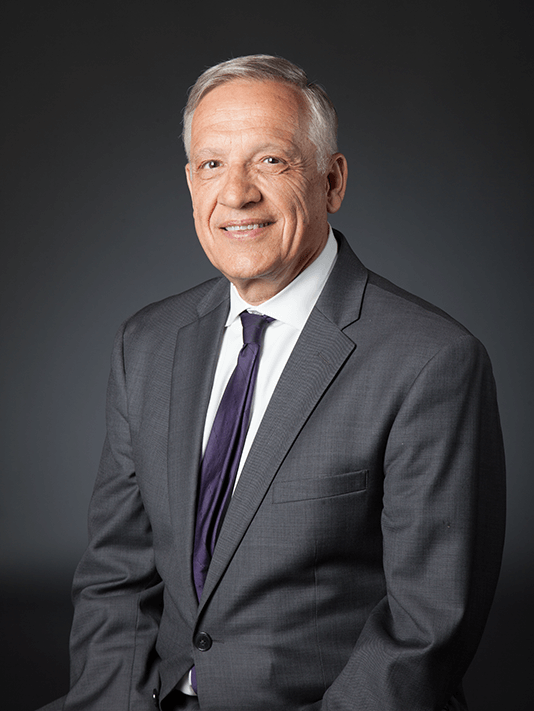Dean’s Message: Life in the Year 11111111111

2024 marks 20 years since the naming of the USC Viterbi School of Engineering, honoring Andrew Viterbi and his beloved late wife, Erna. Twenty years of leadership in engineering education and research. Twenty years of constant transformation. Twenty years of helping engineer a better world.
One might wonder what the world will look like in 20 years. Now, let’s play a bit with a binary notation: The year 2004 is 11111010100; 2024 is 11111101000; and 2044 is 11111111100. Given that my power of prediction is, at best, extremely limited, I will pose, equivalently and without loss, the question for the slightly different year 2047 instead, which is close to 2044 but, in binary notation, has the most pleasant form 11111111111 (11 consecutive 1s). Looking down from heaven, our beloved Sol Golomb would undoubtedly have approved of this slight but numerologically aesthetic departure!
Engineering addresses phenomena and the development of solutions that fall into four generic buckets: sustainability, health, security and enriching life. Engineering schools develop the human potential to help answer the Grand Challenges that fall into these four buckets by relying on and constantly building the four pillars of talent, programs, thought leadership and impact. So, using the playful binary notation theme, it is only natural to say that USC Viterbi will become more complete in these four buckets and four pillars by filling the four 0s in 2024 with four 1s in 2047!
It is not difficult to imagine what pressing issues we will have to solve. In our infinitely connected world, all will be global, if not planetary, starting with energy and climate, health and well-being, security, peacefulness and the exploration of space, enriching life in all its multiple dimensions, from the arts to education to democracy and to the pursuit of knowledge and truth.
Undoubtedly, these issues will all be interdisciplinary and have a solid human-centric component. So, we will need to educate engineers who have not only outstanding technical competence but also outstanding character to help build trustworthiness. This is an effort that we have already started.
I note that my use of the binary system of 0s and 1s is entirely consistent with our modern computational methods, which built our modern world. These have led to extraordinary developments — for example, in artificial intelligence — at a rate that is perhaps faster than exponential, possibly approaching a singularity. I firmly believe we can extract insights that will elevate our ability to infer, postulate, model, predict and effectively use AI to augment HI (human intelligence).
With our launch this year of the School of Advanced Computing (which these pages will amply document), these essential considerations will help our students and faculty across all engineering disciplines — and across USC at large — explore and provide new, impactful and lasting solutions to the constantly expanding Grand Challenges in the various buckets of human endeavor.
Now, I can’t close this prognosticating editorial without making reference to another extraordinary area where USC Viterbi will surely play an important role, namely quantum computing and quantum information processing. Through the Information Sciences Institute, the Viterbi School pioneered in 2011 the first academic quantum computing center using the D-Wave chip. In parallel with the School of Advanced Computing and as part of the Frontiers of Computing initiative, we are building on our strengths in this area by launching a parallel quantum effort that will surely expand our ability to devise new solutions to the Grand Challenges our world will face in the next 20 (23?) years.
As Niels Bohr said, “Prediction is very difficult, especially about the future!” What I am certain will be true, however, is that the Viterbi School will continue to provide human-centric solutions by educating students with both the technical competence and outstanding character to keep engineering a better world for all humanity.
![]()
Dean Yannis C. Yortsos



